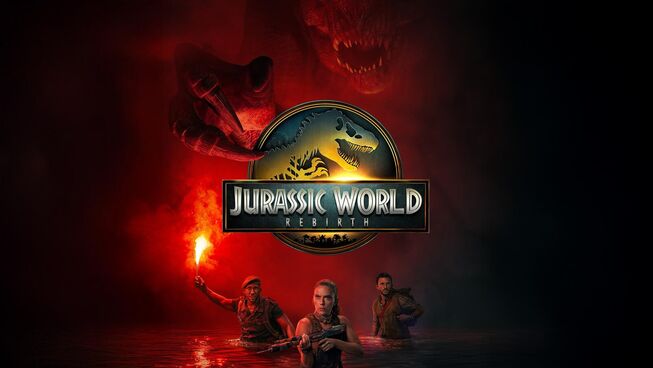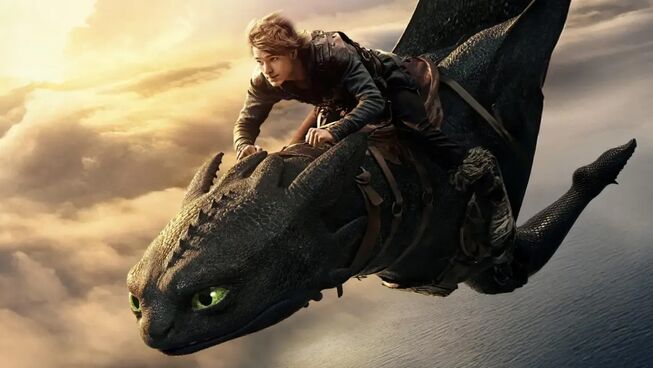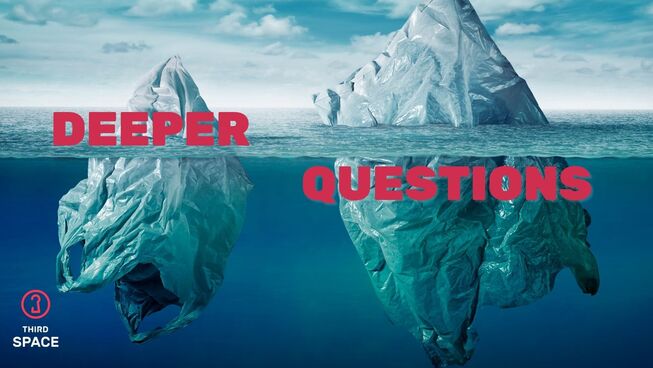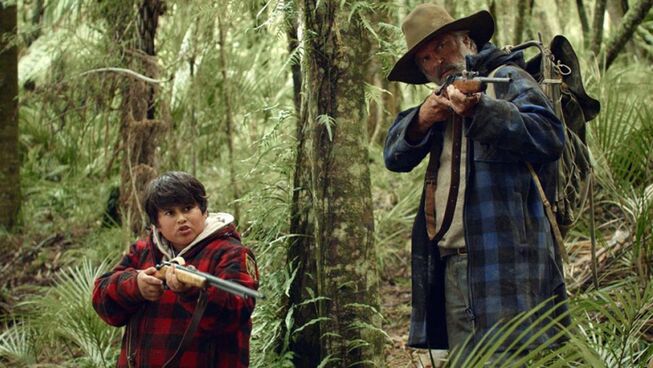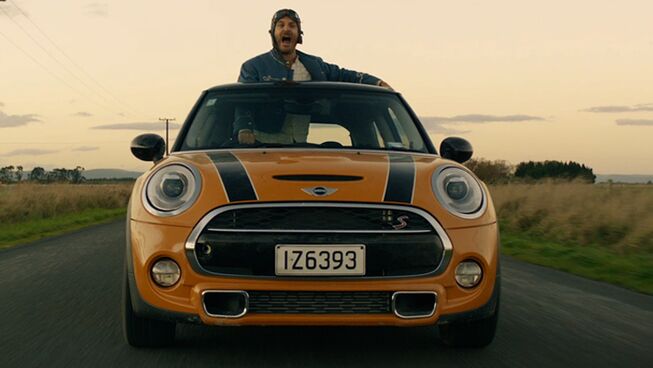Red, White & Brass
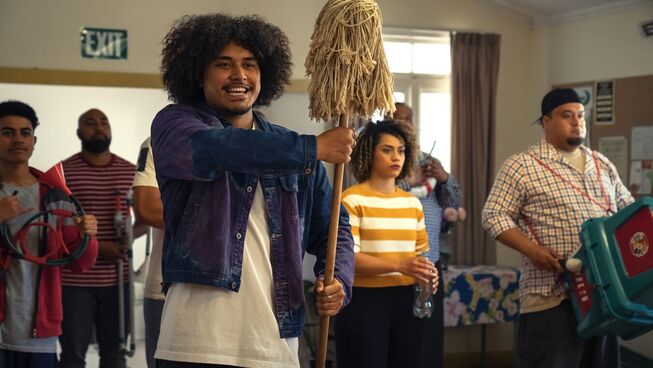
⭐️ ⭐️ ⭐️ 1/2 (out of 5)
One of the joys of The Rugby World Cup is to see all the nations represented at the event and how the fans from each country celebrate their team. Red, White & Brass is based on a true story of a local church band who decided to try out to play for the opening of the Tonga/France clash during the 2011 World Cup in New Zealand. The only catch is that they have never played together as a marching band, and most have never played any instruments.
Maka (John-Paul Foliaki) and Veni (Dimitrius Schuster-Koloamatangi) have been looking forward to Tonga playing the World Cup for years. When the event comes to their shores, they want to do all they can to get tickets for themselves and their Tongan church family. Unfortunately, most of their attempts to get the passes fall apart, leaving them to find desperate measures. After seeing a marching band perform on television, Maka volunteers the musicians from his church to perform before the big game. Even though only some within the congregation have experience in performing, they convince Aroha (Hariata Moriarty), the organiser of the pre-game entertainment, to give their band a chance. Despite the protests of the conservative church leadership and many within the tight-knit community, the band tries out with the hopes of performing and getting tickets to the big game.
As with most true-to-life stories, director Damon Fepulea'i capitalises on the heartfelt intent of those behind this unlikely situation and leans into the energy of this experience. He shows the uniqueness of the Tongan culture and the importance of community amongst these islander fans. This story proves that enthusiasm and focussed drive can overcome obstacles outside and within the Tongan church family. The cast is a mix of characters who manage to capture the heart of this story as they do all they can to make the most of a challenging situation.
Red, White & Brass has become the top-grossing Tongan film of all time and has set box office records in New Zealand. Yet, this is a story that will translate beyond the island nations and will capture the hearts of fans around the world. Not that it sets new standards for filmmaking, but that is not its intent. Instead, this charming movie proves to be the feel-good film of the Sydney Film Festival, and needs to be on everyone's watchlist.
Reel Dialogue: Asking for help
Let each of you look not only to his own interests, but also to the interests of others. Philippians 2:4
The Maka character represents that friend in your life who has big dreams, but may only sometimes think things through before committing himself and others to things. Due to this trait, it takes time for others to trust him when it comes to new ideas and forgive him for many of the failed efforts he inflicted on their lives. This movie shows a beautiful depiction of the body of Christ working together and how forgiveness is at the heart of these relationships.
As we all move along in life, redemption and forgiveness are things that all of us seek from those closest to us. Within the storyline of this lovely film, a key thread is that these essential components for human existence cannot be achieved without help from others. This redemptive assistance can be found at the core of Christianity and can only be achieved through the help of God's work in his Son. Sometimes the first step in any situation is asking for help from others and God.
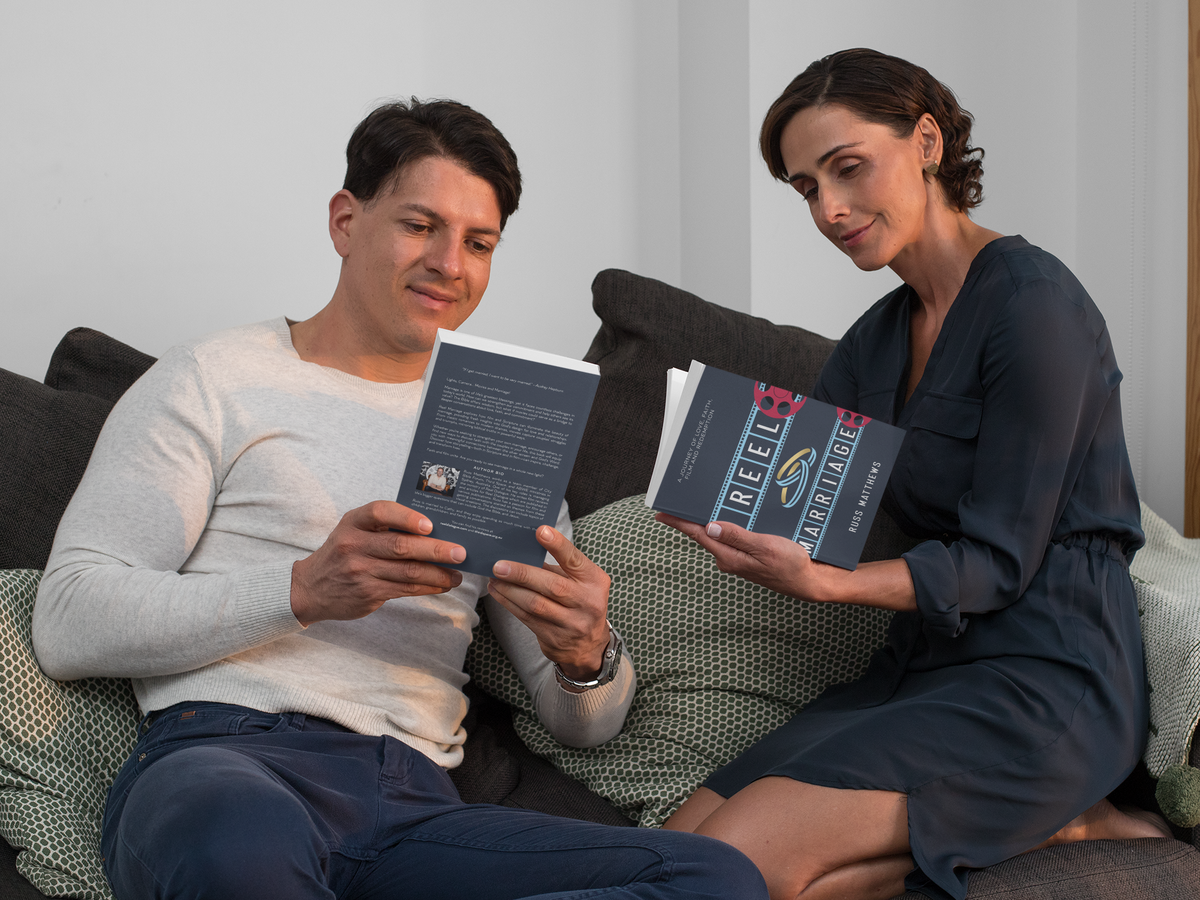
Reel Marriage
Lights, Camera... Movies and Marriage!
Marriage is one of life’s greatest blessings, yet it faces countless challenges in today’s world. How can we strengthen our commitment and help others see its value? The Bible offers wisdom, but what if movies could serve as a bridge to deeper conversations about love, faith, and commitment?
Reel Marriage explores how film and Scripture can illuminate the beauty of marriage, providing fresh insights into God’s design for love and relationships. From classic romances to modern dramas, movies capture couples' struggles and triumphs, mirroring biblical truths in powerful ways.
Faith and film unite. Are you ready to see marriage in a whole new light?
If you order your copy today you will also receive a complementary handbook that is only available with the purchase of the book (Print or ebook)


